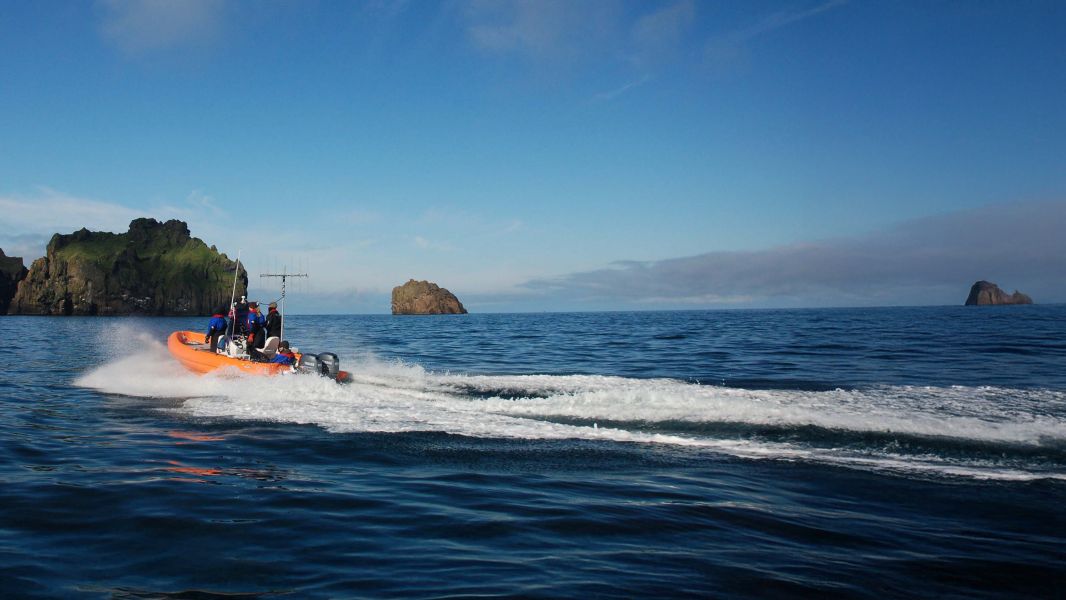Science at Sea
26 August 2025

In both cases, the pilot whale calves stayed remarkably close to the killer whales, at times even being lifted out of the water by them. No adult pilot whales were seen nearby—a highly unusual situation, as calves are almost always accompanied by family members. Even more surprising, the killer whales showed no signs of aggression towards the young whales. The identified killer whales appear to belong to fish-eating groups that mainly prey on herring, rather than those known to target marine mammals.
Scientists cannot say for certain, but they have proposed several intriguing theories: the killer whales may have been playing, practising hunting behaviours without harming the calves, or perhaps even displaying caregiving instincts toward a different species. Because researchers did not observe the full extent of the interactions, the exact nature of these encounters remains unknown highlighting just how much there is still to learn about cetacean behaviour.
These sightings—and the research they inspired—would not have been possible without the involvement of Earthwatch volunteers. Citizen scientists aboard the survey boats played a key role in collecting critical data. The resulting publication contributes to a growing body of knowledge about interspecies relationships in marine ecosystems and showcases the real-world impact of community involvement in scientific research.

Join "Killer Whales and Their Prey in Iceland" and contribute directly to groundbreaking research while exploring one of the world’s most stunning marine environments.
Whether you have a background in science or are simply passionate about protecting our planet, these expeditions provide hands-on experiences that contribute directly to critical environmental research. Participants learn field research techniques, collect valuable data, and gain a deeper understanding of the challenges facing our ecosystems—all while exploring breathtaking natural environments.
By joining an Earthwatch expedition, you can actively contribute to the preservation of coral reefs and other vital ecosystems while being part of a global movement for environmental conservation.
Want to participate in a similar expedition? Get involved today!